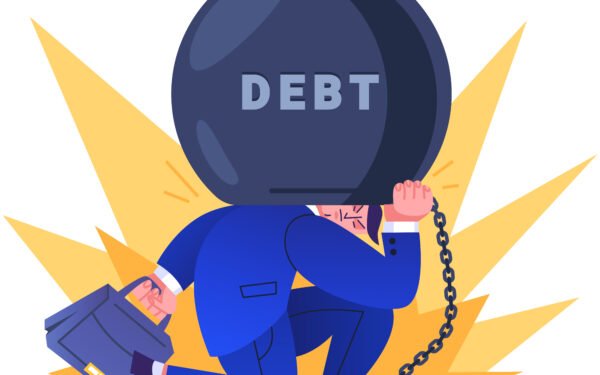Financial Literacy: The Key to Preventing Future Debt
In today’s complex financial world, understanding how money works is more important than ever. Financial literacy equips individuals with the knowledge and skills to make informed decisions about their finances, ultimately serving as a powerful tool in preventing future debt. This article explores the importance of financial literacy, its impact on personal finance management, and practical steps you can take to enhance your financial knowledge.

Contents
What is Financial Literacy?
Financial literacy refers to the ability to understand and effectively manage personal finances. This includes a variety of skills such as budgeting, saving, investing, understanding credit, and making informed financial decisions. A financially literate individual can analyze financial information, plan for the future, and avoid pitfalls that lead to debt.
The Importance of Financial Literacy
1. Empowerment Through Knowledge
Financial literacy empowers individuals to take control of their financial situation. With a solid understanding of financial concepts, people can make informed choices rather than relying on others. This empowerment can lead to better budgeting practices, smarter spending habits, and ultimately, reduced reliance on credit.
2. Avoiding Debt Traps
Many individuals fall into debt due to a lack of understanding about credit, loans, and interest rates. Financial literacy helps you recognize the risks associated with borrowing and the true cost of credit. For instance, understanding how interest compounds can discourage unnecessary borrowing and encourage timely repayments, ultimately reducing the likelihood of debt accumulation.
3. Setting and Achieving Financial Goals
Being financially literate enables you to set realistic financial goals, whether it’s saving for a home, retirement, or your child’s education. A clear understanding of your financial situation allows you to create actionable plans to achieve these goals. This proactive approach reduces the chances of resorting to debt when unexpected expenses arise.
4. Enhancing Investment Knowledge
Investing is a critical aspect of financial literacy. By understanding various investment vehicles, risk management, and market trends, individuals can grow their wealth and create financial security. This financial cushion can prevent the need for debt in times of economic uncertainty or personal emergencies.
Key Components of Financial Literacy
To become financially literate, it’s essential to grasp several fundamental concepts:
1. Budgeting
A budget is a financial plan that outlines income and expenses over a specific period. Understanding how to create and stick to a budget is crucial for managing cash flow and preventing overspending. A well-structured budget helps you identify areas where you can cut costs, allowing you to save and avoid debt.
2. Credit Management
Understanding credit is vital for maintaining a healthy financial profile. This includes knowing how credit scores work, what factors influence them, and how to improve them. A strong credit score can lead to lower interest rates on loans, making borrowing more manageable. Additionally, being aware of credit limits and terms can help prevent overspending.
3. Saving and Emergency Funds
Establishing a habit of saving is essential for financial stability. Financially literate individuals recognize the importance of having an emergency fund to cover unexpected expenses, such as medical bills or car repairs. This fund acts as a safety net, reducing the likelihood of turning to credit when emergencies arise.
4. Understanding Interest Rates
Interest rates play a significant role in borrowing and saving. Being knowledgeable about how interest rates work helps individuals understand the costs associated with loans and the benefits of high-yield savings accounts. This understanding encourages smarter borrowing and saving strategies.
5. Investment Basics
A fundamental understanding of investments—stocks, bonds, mutual funds, and real estate—can empower individuals to grow their wealth. Knowing how to assess risks and returns allows you to make informed investment choices that align with your financial goals.
Practical Steps to Enhance Your Financial Literacy
1. Educate Yourself
Start by reading books, taking online courses, or attending workshops focused on personal finance. Many resources are available, both free and paid, that cover a range of financial topics.
2. Utilize Financial Tools
Many budgeting apps and financial management tools can help you track your expenses, manage your budget, and monitor your credit score. These tools can provide valuable insights into your financial habits.
3. Seek Professional Advice
If you’re unsure where to start, consider consulting a financial advisor. A professional can provide personalized advice tailored to your unique financial situation and goals.
4. Join Community Programs
Many communities offer financial literacy programs and workshops. Participating in these programs can provide practical knowledge and support from others on a similar journey.
5. Practice What You Learn
Apply your financial knowledge in real-life scenarios. Start budgeting, saving for specific goals, or investing small amounts to gain practical experience. The more you practice, the more confident you’ll become in managing your finances.
The Long-Term Benefits of Financial Literacy
Investing in your financial literacy is not just about preventing debt; it’s about creating a sustainable financial future. Individuals who understand their finances are better equipped to navigate economic fluctuations, plan for retirement, and achieve financial independence.
Additionally, financial literacy fosters a culture of informed decision-making, not just for individuals but also for families and communities. When people are financially literate, they can contribute positively to the economy, reducing reliance on social welfare systems and enhancing overall community well-being.
Final words
Financial literacy is a critical skill that empowers individuals to take control of their financial futures. By understanding budgeting, credit management, savings, and investments, you can significantly reduce the likelihood of falling into debt. The journey to financial literacy may take time and effort, but the rewards—financial security, peace of mind, and the ability to achieve your goals—are well worth it. Start today, and equip yourself with the knowledge needed to build a debt-free future.


